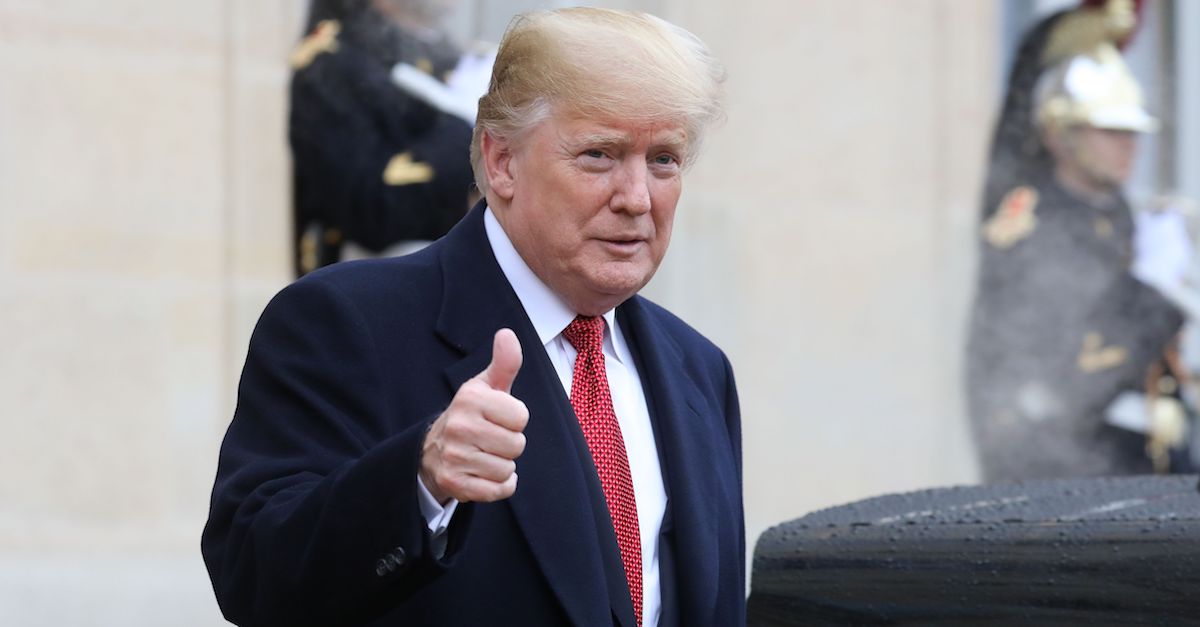
The morning after a federal judge ruled that President Donald Trump could not block a congressional subpoena of finance firm Mazars USA, Trump lawyers have responded–as expected–with an appeal of all things.
In a notice of appeal filed Tuesday, Trump lawyers announced that they “hereby appeal […] all aspects of this Court’s order and opinion from May 20, 2019, which overruled Plaintiffs’ objections to Rule 65(a)(2) consolidation, treated the parties’ preliminary-injunction filings as cross-motions for summary judgment, entered final judgment against Plaintiffs, and denied Plaintiffs’ request for a stay pending appeal.”
The appeal was filed with the U.S. Court of Appeals for the District of Columbia Circuit.
Recall: the House Oversight Committee subpoenaed Mazars USA for Trump’s financial documents, including “Statements of Financial Condition.” Currently incarcerated ex-Trump lawyer Michael Cohen claimed before Congress that Trump would use these “statements” to exaggerate the value of his assets. He would allegedly do so by inflating the number of residential units in properties and the number of floors in towers he owned.
In case you missed it on Monday, U.S. District Judge Amit Mehta ruled in favor of Congress and denied a stay pending appeal.
Mehta, an appointee of former President Barack Obama, concluded that Trump “cannot block the subpoena to Mazars.” He said that “Courts have grappled for more than a century with the question of the scope of Congress’s investigative power,” but that the “binding principle that emerges from these judicial decisions is that courts must presume Congress is acting in furtherance of its constitutional responsibility to legislate and must defer to congressional judgments about what Congress needs to carry out that purpose.”
“So long as Congress investigates on a subject matter on which ‘legislation could be had,’ Congress acts as contemplated by Article I of the Constitution,” the judge continued. “Applying those principles here compels the conclusion that President Trump cannot block the subpoena to Mazars.”
The House Oversight Committee claims that it needs Trump’s financial records to “aid its consideration of strengthening ethics and disclosure laws, as well as amending the penalties for violating such laws,” and “assist in monitoring the President’s compliance with the Foreign Emoluments Clauses.”
Mehta said that these were all “facially valid legislative purposes,” and said that it was not his place to question Congress’ motives. Thus, he entered an order “in favor of the House Oversight Committee” and denied the request for a stay pending appeal.
We’ll see how an appellate judge rules in this case. Some have suggested that it is inevitable the appellate court will agree with Mehta, and that Trump will appeal all the way up to the Supreme Court.
[Image via LUDOVIC MARIN/AFP/Getty Images]